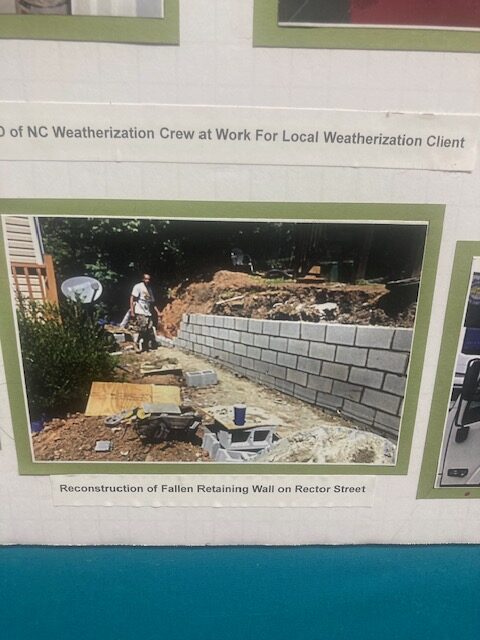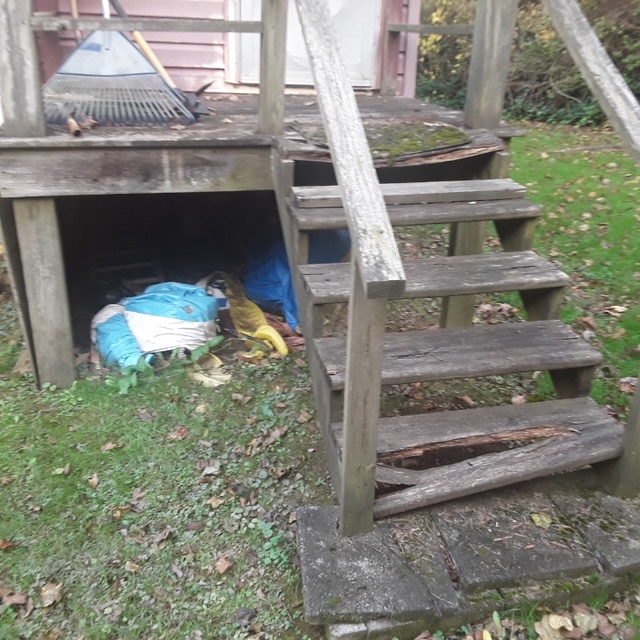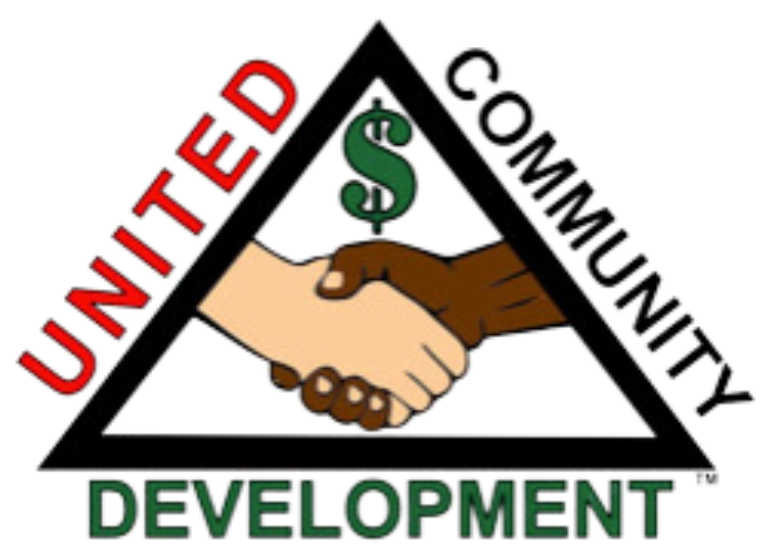Programs
Strengthening Communities, Building Brighter Futures
What We Do
One of the powerful strategies employed by UCD is to use in-demand home repair, weatherization services, and social enterprise to provide job training, real living wage jobs, and cooperative community control of the social enterprise to the organizations and the residents we serve as a vital anti-poverty strategy. All profits from our “fee for services contracts” are used to support our charitable work in low-income weatherization and energy efficiency, home repair job training, de-cluttering services, and resident capacity-building in microenterprise.
Weatherization
UCD holds a City/County/Duke Power subcontract from Energy Savers Network to provide weatherization services to homes of low-income people in Buncombe County so that they may save on expenses for utilities by using education and proven energy saving techniques which saves families on utility bills and heating costs. Job training to under/un-employed low-income people are trained as mechanics by UCD Instructors and retained by UCD as employees.


Home Repairs
Modest home repairs which affect the quality of life such as repairing holes in access ways, entry ways, repairing doors which are not functional, and other minor home repairs which affect the quality of life are also provided to low income/elderly citizens.
UCD has also performed complicated life/health safety repairs which other major non-profit organizations which receive millions of dollars in HUD and other government repair programs could not/cannot do like collapsed masonry walls and other difficult repairs, which threatens life, health, and safety of low income, disabled and elderly clients.


De-Cluttering
In 2022, UCD also launched a de-cluttering program to assist households, particularly those which are occupied by elderly persons to remove unwanted items which compromise the quality of their lives by preventing healthy and safety ingress/egress, hygiene, and which compromise the quality of their lives, are removed from their households with their permission and oversight.


Green Infrastructure
Green infrastructure is an approach to water management that protects, restores, or mimics the natural water cycle. It means building greenways, planting trees, and restoring wetlands, rather than building more costly water treatment plants. Other examples of green infrastructure(GI) are: rain gardens, vegetated swales, green roofs, and porous pavements. With climate change, green infrastructure is used to capture and treat stormwater at its source. GI can protect communities against flooding and the effects of urban heat islands. Lastly, at the site scale, smart communities are using green infrastructure for transportation systems(green streets). It also involves park systems and urban forests, and greenways.
According to the U.S. Environmental Protection Agency in an article dated January 2019, entitled,” Growing New Jobs With Green Infrastructure” it states that “ The adoption of green infrastructure practices to manage stormwater runoff is a growing trend in communities across the country, but operating and maintaining a network of green infrastructure assets is no easy task; it requires the expertise and labor of a skilled workforce.”
Not only, will we provide jobs to Southside and other poor communities, we will build the capacity of residents to stay as neighborhood revitalization occurs, by participating in public construction projects like walking paths, greenways, and working with local governments to develop better pedestrian and bike infrastructure.
